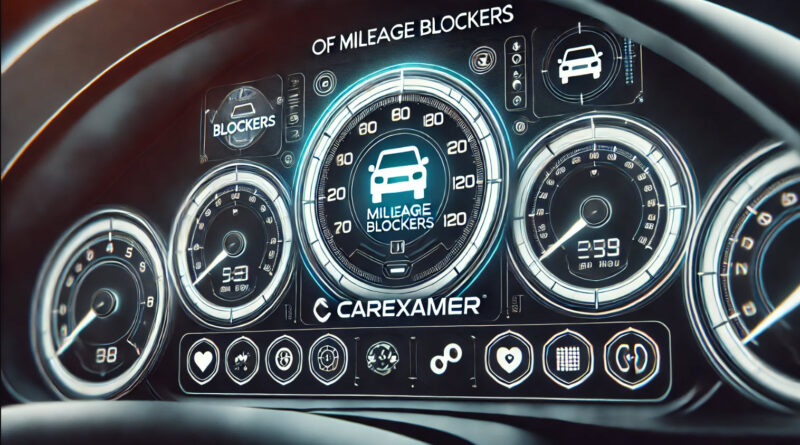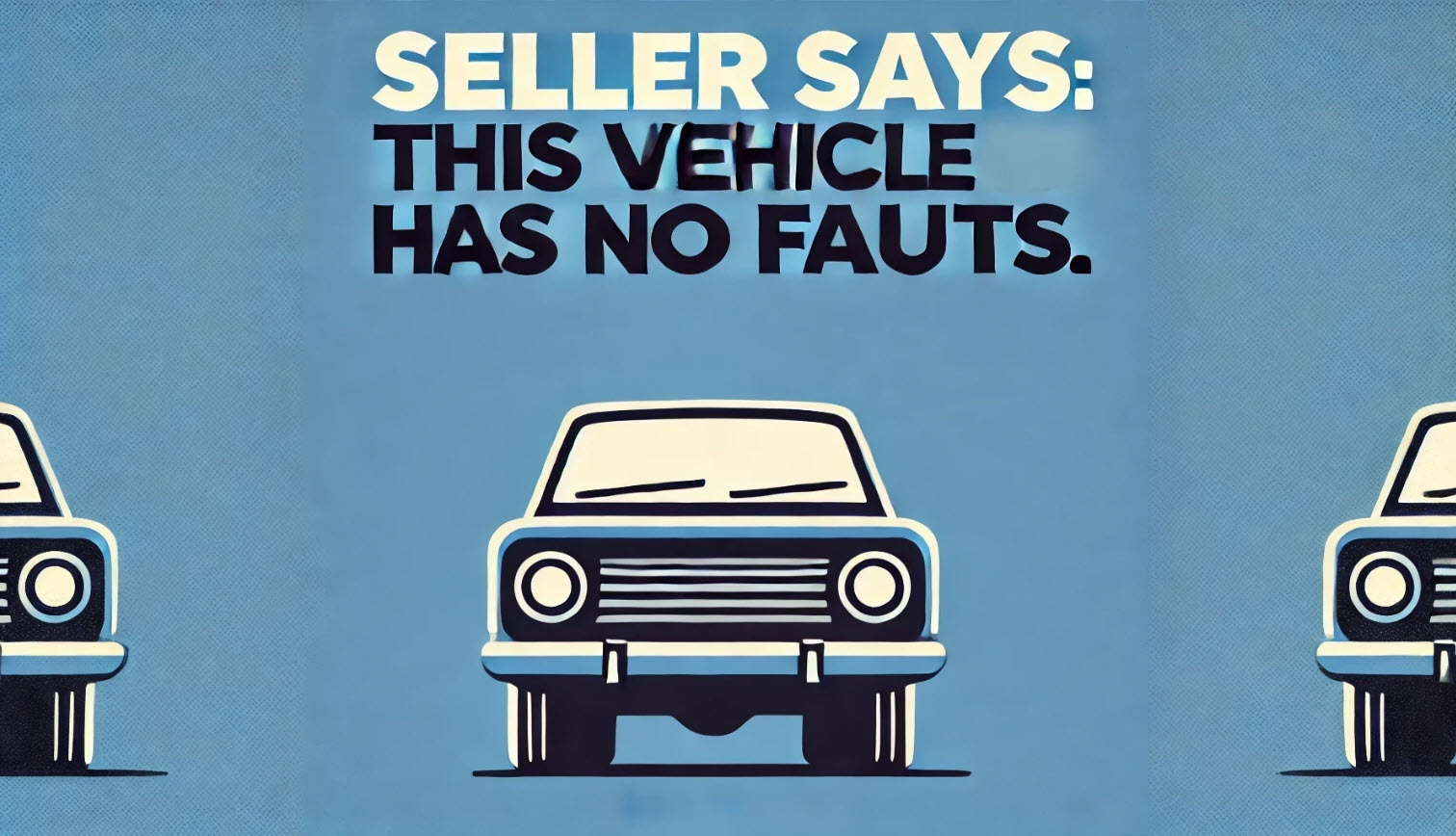Info Mileage Blockers What Do They Do, and Are They Legal?
In this article, we’ll break down how mileage blockers work, what they’re used for, and whether or not they’re on the right side of the law. If you’ve been looking into used cars or the latest in vehicle technology, you might have heard about something called a mileage blocker. It’s a controversial tool designed to alter a car’s mileage reading. But what exactly does it do, and more importantly, is it legal to use?
What Is a Mileage Blocker?
A mileage blocker – sometimes called a mileage stopper or odometer correction tool – is a device that prevents your car from recording the actual distance it travels. Unlike devices that roll back the odometer, a mileage blocker doesn’t erase already recorded miles; instead, it stops the odometer from logging any more miles as the car moves.
In short, it keeps the mileage reading lower than the actual distance the car has covered.
How Does a Mileage Blocker Work?
Mileage blockers are plugged into your car’s OBD-II port or pugged in behind instrument cluster between wiring, which is the same port mechanics use to diagnose issues in your car. Once installed, the blocker sends a signal to the vehicle’s odometer, essentially “freezing” the mileage reading while the car is in motion.
Here’s how it plays out:
- As you drive, the mileage blocker stops the odometer from counting the miles on instrument cluster only, however it does’t stop recording odometer on all other subsystems there are many.
- The odometer pauses at whatever number it was at when you activated the device.
- Drivers can turn the device on and off at their convenience, meaning they can choose when to block the mileage recording.
These devices are often advertised as tools for testing cars on private tracks or preventing mileage accumulation during diagnostics and service checks.
Are Mileage Blockers Legal?
The legality of using a mileage blocker depends on where you are and how you’re using it. Let’s break it down by region:
1. In the UK
In the UK, using a mileage blocker with the intent to deceive (for example, selling a car with a lower mileage reading) is illegal under the Consumer Protection from Unfair Trading Regulations 2008. If you’re caught selling a car with an inaccurate odometer reading, you could face legal consequences, including fines or prosecution.
That said, there are legitimate uses for mileage blockers in testing environments, but the moment the device is used to mislead a potential buyer, you’re breaking the law.
2. In the US
In the US, tampering with a vehicle’s odometer is strictly illegal under the Truth in Mileage Act of 1986. Using a mileage blocker to prevent the recording of mileage with the intent to deceive a buyer falls under this law. If you’re caught using one to sell a car with false mileage, you could face hefty fines or even imprisonment.
3. In Europe
Most European countries, including Germany and France, have strict regulations against odometer tampering. Similar to the UK and US, using a mileage blocker to mislead a buyer is a criminal offense. Fines and other legal penalties can apply if you’re caught selling a car with an altered mileage reading.
Are There Any Legitimate Uses for Mileage Blockers?
No, there is no legitimate uses for mileage blocker as it’s a cheating device:
- Testing on Private Tracks: there is no need using mileage blocker as it only stops reading on instrument cluster.
- Car racing: There is no legal requirement to log total odometer reading however all this information like total engine running hours our distance driven is saved in computer memories.
- On road legal car and older cars speedometer cable can snap and not count the mileage distance or instrument cluster display can be corrupted and may not read the mileage however it would be MOT failure.
If you use the device for anything that could be seen as deceptive, you’re at risk of breaking the law.
Risks of Using a Mileage Blocker
Even if you’re not planning to use a mileage blocker to trick anyone, there are still some risks involved:
1. Legal Consequences
As mentioned, it’s illegal in many places to use a mileage blocker with the intent to deceive. Even if you aren’t trying to scam someone, you could face legal trouble if authorities believe you’re using it improperly.
2. Impact on Car Value
A mileage blocker might keep the odometer reading low, but if someone discovers the discrepancy, it could seriously hurt your car’s value. Buyers are likely to walk away from a deal if they find out the mileage has been tampered with.
3. Warranty and Insurance Issues
Your car’s warranty and insurance are often linked to its mileage. If a mileage blocker is used, you could void your warranty or run into issues with insurance claims, especially if the actual mileage doesn’t match what’s on the odometer.
4. Vehicle Damage
Using a mileage blocker incorrectly or installing a faulty one can damage your car’s electronic systems, leading to expensive repairs. It could also mess with your vehicle’s sensors, causing additional problems down the road.
How to Spot Odometer Fraud
If you’re buying a used car, knowing how to spot signs of odometer tampering can help you avoid being scammed. Here are some tips:
- Vehicle Diagnostics: When performing diagnostics or routine maintenance or pre purchase car inspection mechanics use diagnostic equipment and check for mileage issues to ensure that necessary miles aren’t removed from the odometer reading.
- Check the Service Records: Look at the mileage listed on service records and compare it to the current odometer reading. If there’s a big gap or any inconsistencies, that’s a red flag.
- Inspect Wear and Tear: The condition of the car should match its mileage. If a car has low mileage but looks heavily worn (e.g., the pedals, steering wheel, and seats show significant wear), it could be a sign that the mileage has been altered.
- Get a Vehicle History Report: Remember it’s not physical check vehicle’s mileage discrepancy will only be registered in car history check if it has been flagged it doesn’t mean mileage is haven’t been altered.
A mileage blocker is a device that stops a car’s odometer from recording miles while driving. While it has some legitimate uses in testing and diagnostics, using one to mislead a buyer or falsify mileage is illegal in many countries, including the UK, US, and across Europe.
If you’re buying a used car, always be on the lookout for signs of odometer fraud to ensure you’re not being misled. And if you’re considering using a mileage blocker, make sure you fully understand the legal risks involved and avoid any deceptive practices.
FAQs
What is a mileage blocker?
A mileage blocker is an electronic device designed to prevent a vehicle’s odometer from recording distance while the car is in motion. It does not erase previous mileage but pauses further mileage accumulation when activated.
Is using a mileage blocker legal in the UK?
Using a mileage blocker with the intent to mislead or deceive a buyer is illegal in the UK under the Consumer Protection from Unfair Trading Regulations 2008. Selling a vehicle with inaccurate mileage can result in prosecution, fines, or other legal consequences.
Can a mileage blocker affect a vehicle’s warranty or insurance?
Yes. Vehicle warranties and insurance policies often rely on accurate mileage records. If mileage is artificially altered or blocked, it may invalidate a warranty or create complications in the event of an insurance claim.
How can I check if a used car’s mileage has been tampered with?
You can compare the odometer reading with MOT history, service records, and vehicle history reports. Inconsistencies between recorded mileages, excessive interior wear compared to displayed mileage, or diagnostic discrepancies may indicate potential tampering.
Can a vehicle inspection detect mileage discrepancies?
A professional pre-purchase inspection can identify signs of potential mileage inconsistencies through diagnostic checks, electronic control unit data comparisons, and assessment of wear patterns relative to the stated mileage. However, no inspection can guarantee detection if discrepancies have not been electronically flagged.




